
Wyndham Rejects $9.8 Billion Takeover Offer from Choice Hotels
Wyndham Hotels & Resorts Inc. rejected a takeover offer from Choice Hotels International Inc., saying the proposal undervalues
2023-10-18 00:21
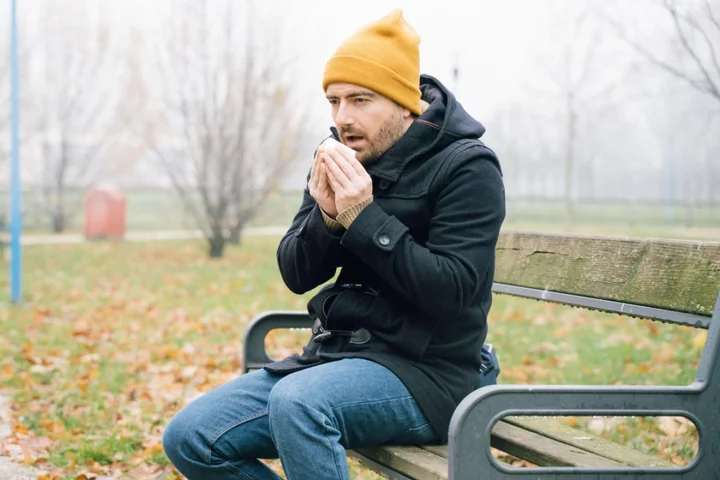
How to look after your immune system as the weather changes
The changeable weather is not just affecting our mood and how we dress – doctors have warned it is impacting our immune systems, too. After the warmest October temperatures in five years were recorded at the start of the month, temperatures have since plummeted, with the first frosts of the autumn recorded in several parts of the country this week. And now Storm Babet is set to bring heavy rainfall and wind to many parts of the country over the next few days. Old wives’ tales tell us that cold, damp weather means we’re more likely to become ill – but there is some truth in the warnings, says Dr Babak Ashrafi, GP and clinical lead for service expansion at Superdrug Online Doctor. Recent US research found an increased risk of illness when temperatures drop, because cold lowers immunity in the nose and makes us more susceptible to viruses. A drop in nasal tissue temperature of just 5°C has been found to reduce immune response by almost half. “Rapid shifts from warm to cold weather can stress the body and shock the immune system, making you more vulnerable to colds and infections,” warns Dr Ashrafi. “With Storm Babet on its way, it’s important to prepare your body for this sudden cold spell, to keep your immune system on top form.” To make sure your immune system is as healthy as possible, he recommends: 1. Make sure you’re getting enough vitamin D Dr Ashrafi points out that the changing weather has coincided with seasonal outbreaks of viruses, such as flu. “These infections can put additional strain on the immune system,” he says. “During colder months, decreased sunlight exposure can cut your main source of vitamin D, which is essential for a healthy immune system.” Dr Ashrafi says adding more vitamin D-rich foods into your diet, such as fatty fish like salmon and mackerel, mushrooms, egg yolks and certain fortified orange juices, is a great way to help strengthen your immune system. “It can help protect your immune system by providing an all-important vitamin boost,” he says. “And remember, vitamin D supplements are also a good idea during winter.” The NHS recommends everyone, including pregnant and breastfeeding women, should consider taking a daily supplement containing 10 micrograms of vitamin D during autumn and winter. 2. Dress for the weather Prolonged exposure to cold can increase the risk of illnesses such as the common cold or flu, warns Dr Ashrafi, who explains the body’s core temperature needs to remain within a narrow range for optimal function. “When you’re exposed to cold temperatures, your body works harder to maintain this temperature, diverting energy and resources away from other essential functions, including immune responses,” he says. “It’s always best to check the weather and layer clothing to help insulate your body, making it easier to maintain core temperature without excessive effort.” 3. Maintain a healthy diet Consuming a well-balanced diet rich in fruits, vegetables, lean protein and whole grains will provide essential nutrients to support immune function, says Dr Ashrafi. “Probiotics from yoghurt or kefir are also great for helping to maintain a healthy gut microbiome, which plays a significant role in immune health,” he advises. 4. Stay hydrated It’s important to drink plenty of water or sugar-free soft drinks, even in the autumn and winter, as good hydration also plays a role in keeping the immune system healthy, says Dr Ashrafi. “Ensure you’re staying hydrated despite the cold, to keep mucous membranes moist, helping to defend against infections.” 5. Get some rest Dr Ashrafi explains that sleep is crucial for the production of antibodies, which in turn recognise and neutralise pathogens such as viruses and bacteria. “To boost and support your immune system, it’s essential to prioritise and maintain healthy sleep habits. Aim for seven to nine hours of quality sleep each night by establishing a regular sleep schedule in a comfortable environment. “These practices will help ensure your immune system functions optimally and can effectively protect your body from infections.” 6. Get your flu vaccination Flu vaccinations target the specific strains of the influenza virus that are expected to be prevalent during the flu season. Dr Ashrafi says: “If you’re considered vulnerable and are particularly concerned about the sudden cold, getting an annual flu shot can protect you from seasonal influenza. “Avoiding flu can be difficult, especially as it can be passed on through sneezing, coughing and even hand contact, so it’s important you wash your hands regularly. Getting vaccinated annually ensures your immune system is well-prepared to defend against the most likely influenza variants.” Read More How to protect your plants as the first frosts arrive How to prep your home for when the clocks go back This is shoe designer Jimmy Choo’s proudest achievement 4 black women on their experiences with breast cancer See Madonna’s extravagant tour outfits – including an updated cone bra Halloween pumpkins – how to grow your own
2023-10-17 22:18

Goldman Boss David Solomon Ditches His High-Profile DJ Gigs
David Solomon has decided to no longer DJ at high-profile events, an early retirement for a highly visible
2023-10-17 17:29

Israel Latest: Biden Plans Mideast Trip in Drive to Contain War
President Joe Biden will travel to Israel on Wednesday in a show of solidarity for the US ally
2023-10-17 13:47

Yo-Yo Ma Hong Kong Tickets Sell for as Much as Taylor Swift Gig
Cellist Yo-Yo Ma’s upcoming concert in Hong Kong is in such high demand that scalpers are charging more
2023-10-17 11:27
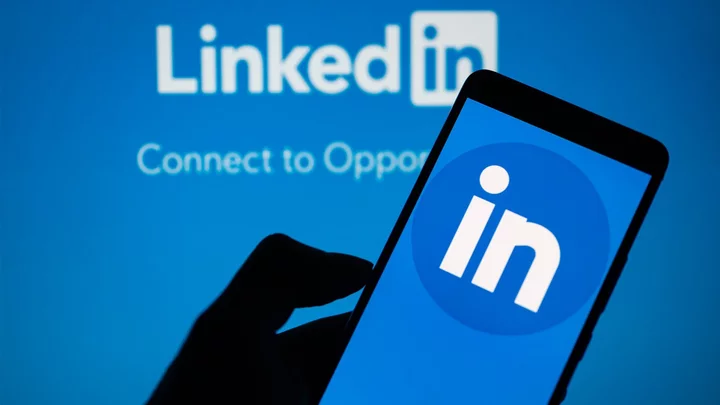
LinkedIn Lays Off 668 More Employees
LinkedIn today announced layoffs that affect 668 employees. The layoffs will impact the engineering, product,
2023-10-17 10:57

Billionaire Arnault Loses Spot as World’s Second-Richest Person to Bezos
Bernard Arnault lost his spot as the world’s second-richest person as a selloff in luxury stocks pushed his
2023-10-17 05:59
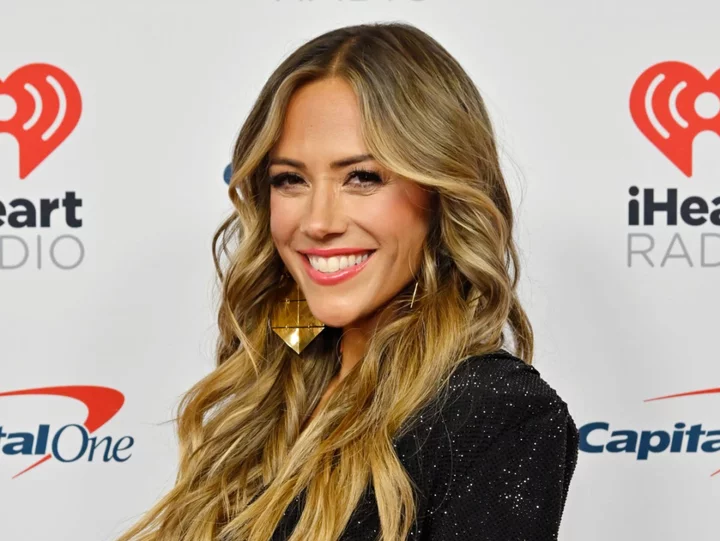
Pregnant Jana Kramer shares details of her recent hospitalisation
Jana Kramer has spoken candidly about her recent hospital trip while pregnant with her third child. Over the weekend, the country star posted a health update on Instagram, sharing how the pain in her back led her to a hospital bed. The 39-year-old shared a slew of photos and videos of her in the medical center with the caption: “Well. Our babymoon didn’t go as planned but there were some lessons learned. First off and most important, baby is good.” Kramer made sure to note she and “babymoon” were on the mend after she endured a “bad bacterial infection”. According to the One Tree Hill actor, she travelled to Florida with her fiancé of five months - Allan Russell - while experiencing serious back pain. However, it wasn’t until a fan reached out to her suggesting the pain could be caused by her kidney. In her detailed message, Kramer confessed to being a “hypochondriac” and that she’s been known to self-diagnose, which initally led her to ignore the back spasms. “Not wanting to ruin our babymoon or be sometimes how I can be (slight hypochondriac… and que my closests friends to laugh at slight) [sic] we boarded the plane to Florida,” the “Whiske” artist wrote. “When we landed I just couldn’t handle the pain anymore and I started to feel even more sick so we went to the hospital.” “Long story short it was a bad bacterial infection that got into the kidneys,” she continued. “This resulted in a two-day stay in hospital and antibiotics because I let it get passed where I should have. So. Lesson. Listen to ur body.” Kramer also warned other moms and women about the dangers of not getting their bodies examined by a professional at the first sign of something wrong. “Leaving things for too long or not taking care of yourself when ur not feeling good can become very serious,” she remarked. After she was released from the facility, Kramer and Russell drove to the beach for some much-needed fresh air and scenery. In a follow-up post, the “I Got The Boy” creator said their last-minute excursion to the beach Florida was an “upside” of her health scare. Kramer welcomed her two other children – Jolie, seven, and Jace, four – with her ex-husband Mike Caussin. The two were married from 2015 to 2021, beginning their romance in 2014. Kramer has since alleged that Caussin was unfaithful to her in their marriage more than once. She met her fiancé, Russell, on a dating app earlier this year and the Scottish soccer player waited only six months before asking for her hand in marriage in May. Shortly after, they announced they were expecting their first child together. Read More Jana Kramer clarifies Chris Evans ‘bathroom ghosting’ incident Jana Kramer says brief relationship with Chris Evans ended after ‘mortifying’ bathroom incident Jana Kramer claims her ex-husband cheated on her with ‘more’ than 13 women
2023-10-17 03:57

Sam Neill shares blood cancer update as he reveals he’s ‘not remotely afraid’ of death
Sam Neill has been warned by doctors that his cancer treatment drug will stop working at some point, the actor said as he provided a health update months after revealing that he had been diagnosed with stage-three blood cancer. Earlier this year, the Jurassic Park star released his memoir Did I Ever Tell You This?, in which he revealed that he was being treated for angioimmunoblastic T-cell lymphoma. At the time, Neill shared that he had originally undergone chemotherapy, but that the cancer had soon stopped responding. He then went onto an experimental anti-cancer drug. In a new interview, Neill, 76, shared that he’d upped his dosage of the “grim and depressing” drug from once a month to every two weeks. However, he said, he has now been in remission for 12 months. Neill told ABC’s Australian Story that while he would be on the treatment indefinitely, doctors have told him that, at some point, it will stop working. “I’m prepared for that,” he said, adding that he is “not remotely afraid” of death. The Piano star said that he had first found lumps in his neck in early 2022, and soon learnt that he had cancer. “I started to look at my life and realise how immensely grateful I am for so much of it,” Neill said. “I started to think I better write some of this down because I’m not sure how long I have to live. I was running against the clock." First sharing his cancer diagnosis in March, the New Zealand actor – who is best known for playing palaeontologist Dr Alan Grant in the Jurassic Park franchise – said that dying would “annoy” him. “I’d really like another decade or two, you know?” he said. “We’ve built all these lovely terraces, we’ve got these olive trees and cypresses, and I want to be around to see it all mature. And I’ve got my lovely little grandchildren. I want to see them get big. But as for the dying? I couldn’t care less.” In an interview with The Independent earlier this year, however, Neill threw out the idea of retiring. “The idea of giving up my day job? Intolerable!” he said. “I love acting. It’s really good for me to keep walking onto new sets with young actors and all that stimulation. New words, new ideas, there’s nothing like it. I never want to give that up. The idea of retirement, of having to play golf, fills me with untold dread,” he said. Read More Sam Neill says Robin Williams was ‘the loneliest man on a lonely planet’ Amy Dowden delights Strictly Come Dancing fans in surprise appearance amid breast cancer treatment Richard E Grant says there are friends he’ll ‘never speak to again’ after death of wife Joan 4 black women on their experiences with breast cancer Ed Gamble says he used to weigh himself every day amid ‘obsessive’ weight loss Some people are born with a ‘talent for happiness’ – so what’s their secret?
2023-10-17 00:20
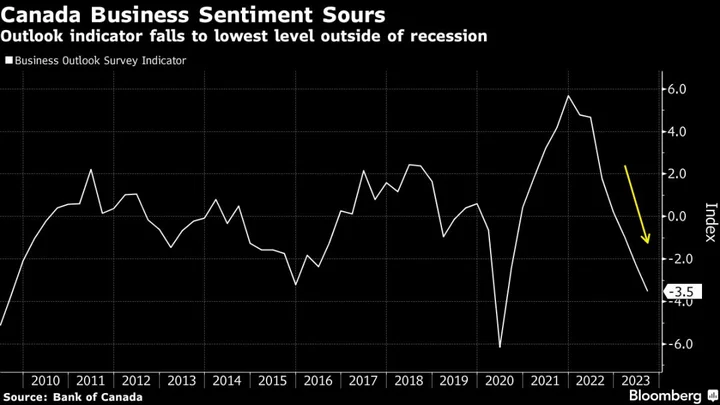
Business Outlook in Canada Drops to Lowest Since Covid Shock
Canadian business sentiment fell to its weakest level since the Covid recession of 2020, but inflation expectations of
2023-10-16 23:47

Germany to Beef Up Checkpoints in Crackdown on People Smuggling
Germany said it’s stepping up efforts to thwart people smuggling by empowering police to establish mobile and fixed
2023-10-16 22:48
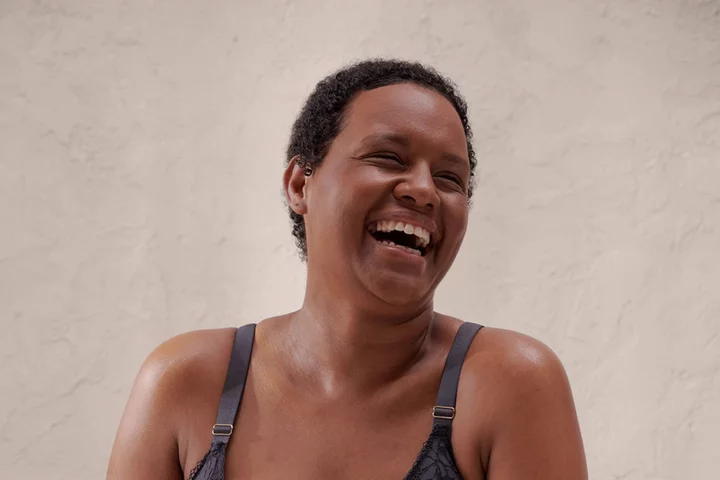
4 black women on their experiences with breast cancer
For black women living with breast cancer, it can be especially difficult to talk about what they’re going through – for various reasons. A study by Cancer Research UK and NHS Digital published earlier this year in BMJ Open found black women were more likely than white women to be diagnosed with late-stage cancer, when the disease is generally harder to treat – with lack of awareness, delays in seeking help and barriers to accessing diagnostic tests all cited as contributing factors. Stigma and myths around cancer in the black community can also play a part. “Speaking freely isn’t something that black women do naturally,” says Jacqueline Bassaragh, 56, who joined The Black Women Rising cancer support project in 2018, after struggling with the aftermath of her own breast cancer diagnosis at 51. The groups gave her a much needed safe space to open up. “If I felt angry, sad, even joyous and really happy, I could share every emotion I was going through without judgement,” Bassaragh adds of the flagship programme of The Leanne Pero Foundation, a registered UK charity which supports people of colour affected by cancer. Bassaragh says she initially “shut down” emotionally after receiving her diagnosis. She experienced a post-menopausal bleed, after not having had a period for years, and two days later her left breast started leaking and became very hard, hot to touch and painful. When it had calmed down, she felt a lump and booked an appointment with her GP, who referred her to the local hospital. “The consultant shared that I had breast cancer in such a crude way. I asked if my son could join me — he was in the waiting room — and he repeated himself in the exact fast and crude way again,” Bassaragh recalls. “I was feeling angry inside, but when I looked over at my son and could see his eyes watering up, in that instance — as we do as black women — I just shut down my emotions and asked what we needed to do next. I hadn’t actually cried about it until April this year.” Rhakima Khan recalls how her first reaction when told she had hormonal-based breast cancer on Valentine’s Day, 2022, was laughter. “It’s a coping mechanism I’ve had since I was a child,” says Khan, 36. “The nurse was so taken aback, as she was expecting me to break down. At that moment, I accepted the news and just wanted to know what we were going to do next. “But when I walked out of that consultant room and went to the toilet, I cried. Not because I was sad, angry or frustrated. I cried because they diagnose you with breast cancer and then immediately flood you with information. That can be very overwhelming.“ Khan had discovered a lump near her sternum whilst having a shower after working a late shift as a theatre practitioner at Bristol Children’s Hospital. “I went across my chest with my sponge and thought, that wasn’t there before. I had checked my breasts the previous month but hadn’t checked them yet that month, so I lifted my hands and began,” she says. “I found a decent-sized lump that wasn’t very visible but hard and rigid. It just didn’t sit right with me.” She remembers being determined to stay alive for her son, who was nine, and daughter, who was two. “If it meant I’m going to lose two breasts — though the NHS would only allow me to have a single mastectomy because I didn’t have an aggressive form of cancer — so be it. My breasts don’t make me a woman, they were there to feed my children. It’s society that has sexualised them,” Khan says. She also took up blogging, documenting her journey to encourage other black women to regularly check their breasts . This is how Khan got involved in the new Primark and Breast Cancer Now campaign in celebration of Breast Cancer Awareness Month; the retailer will be donating £300,000 to the charity for support and research. Toye Sofidiya, 33, was first diagnosed and treated in 2016. The cancer returned in 2020 just before the first lockdown, and she eventually had a mastectomy in September that year. “I haven’t come to terms with it,” says Sofidiya. “It’s been three years since my body has gone through a major change – it’s not something you ever get used to. Going on holidays, gaining weight, having to always wear a bra, having to look extra hard for outfits that I would be comfortable and still stylish in. “I sometimes even forget to wear my prosthetic boob, which I can only wear with mastectomy or post-op surgery bras. I don’t mind wearing a lot of T-shirts, tank tops and bandeaus, but I’m really limited as a young woman. I’m worrying about things my friends don’t have to consider. “It’s important to know your body,” she adds. “I knew my body, and as soon as something seemed out of place for me, I knew I had to get checked, because I have a history of cancer in my family. I just didn’t think I would get it.” Neither did Deandra Paul, 29, who found a “tiny lump” on her left breast, two days after finding out she was pregnant with her second child, after being prompted by an Instagram post to do a self-examination. Paul had only recently stopped breastfeeding her baby daughter – but wanted to be sure so she booked a GP appointment, only to be told there probably wasn’t anything to worry about. “I wasn’t happy and wanted to get checked out properly,” Paul recalls. “So the GP made a referral to [the hospital] where I had a physical examination. They told me the same thing and said it was probably just [benign]. But due to their policy, they still had to do a biopsy and two weeks later on June 27, 2022, they told me I had breast cancer. “I remember having an out-of-body experience, where I could see and hear myself shrieking like a hyena. My husband, who was with me at the appointment, was just quiet. I was so alarmed because I have no history of breast cancer in my family. They never told me what to do, but said I could either keep or terminate the baby. “Most people in the black community would assume you can’t do chemotherapy or a mastectomy whilst you’re pregnant, but you can. It’s what I decided to do after going into research mode, to see if anyone has ever done it before,” adds Paul. “I stumbled across the Cancer and Pregnancy Registry, run by an American lady who has been studying cancer and pregnant patients. None of the women looked like me, but thankfully, someone had a similar story to mine.” After surgery to remove the lump and some chemotherapy, she decided to switch to London Bridge Hospital to receive private healthcare from HCA Healthcare UK, where she had more treatment and a skin-sparing mastectomy (with plans for an implant in the future). “Invest in your health,” she Paul. “If you have had the experience of not being listened to, or fear that your health is dismissed by the system, then try and seek a second opinion. If you or your partner have private healthcare through work, use it. If you don’t, research your options for health insurance and really consider if there’s something else that you can give up in your monthly expenses to invest in your health. Health truly is wealth.” Read More See Madonna’s extravagant tour outfits – including an updated cone bra Halloween pumpkins – how to grow your own Presenter Louise Minchin: Menopause conversations are no longer taboo – but we need to keep going Online apps recommended to manage lower back pain From choppy bobs to fox red, 5 celebrity-approved hair trends for autumn The UK’s first dedicated male breast cancer organisation has launched
2023-10-16 21:58
